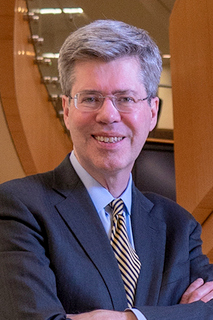
People choose a specific law school for many and varied reasons. I know that many of you will select a school because you believe it is the "best" law school you can get into. Some of you want to attend a school in a particular geographical region, while others of you will select an institution because you believe its program offers specialization in certain fields of the law. Perhaps some applicants want to attend a school with a particular religious affiliation. And all of you are concerned about the cost of legal education, and the value and marketability of your J.D. degree once you graduate.
These are all valid considerations, and Marquette merits your serious consideration for any of these reasons. However, I suggest there are some other things you should also think about. First, what is your experience in law school going to be like? Will you become part of a supportive family of students, faculty, administrators and alumni? Second, what kind of person will you be as a result of your legal education? Will law school help you to gain a respect for all persons and an understanding of how law can help people resolve difficult problems, often in times of great stress? Will you be a better person after law school, or not?
To me, the law is a helping profession. As a Catholic and Jesuit law school, we have a particular obligation to assure that the education that is provided at Marquette is designed to enhance our students' respect for all people, while assuring that our students become skilled lawyers who can excel in the legal profession.
Marquette provides you with an unusual opportunity. First, we are an outstanding law school. Our curriculum is designed to ensure that you will have the substantive knowledge, skills, and values essential to practice law in the twenty-first century. We are extremely proud that we train lawyers—lawyers who practice in all areas of the profession, in private firms and public agencies, in Wisconsin and throughout the United States. It is no accident that many of our alumni are state and federal judges, and that many Marquette University Law School graduates are business and political leaders. We teach our students to have the skills to succeed in whatever branch of our profession they select. Part of the Jesuit tradition of education is encouraging students to become agents for positive change in society. This is especially important in a law school.
We are not afraid or ashamed to speak about faith, morality, and right and wrong, but we are not parochial in our views.
We want our students to be decent people, to give back to our communities, and to be leaders in doing good, both within and outside the profession. We are committed to encouraging our students upon becoming lawyers to provide legal assistance to people who lack the resources to retain counsel and to ensuring that all members of the profession are moral and ethical. We want to use law as an engine for positive change, not as a device to cause anger and unhappiness. Even in the context of adversarial relationships and an attorney's obligation to provide zealous representation to clients, lawyers must be skilled and committed to resolving disputes while maintaining respect for opposing parties and counsel.
Some of you may be concerned about attending a Catholic and Jesuit institution. You might fear that we have modified our curriculum in some way to reflect the views of the Church or the Society of Jesus. Or you might think that we will try to change your present religious belief. In fact, The Society of Jesus, Marquette University, and this Law School are absolutely committed to the core concept of academic freedom and to a full dialogue on every and any issue. Indeed, it is my experience that a broader exchange of views is possible here than at many institutions that are constrained by "political correctness." We are not afraid or ashamed to speak about faith, morality, and right and wrong, but we are not parochial in our views. We welcome persons of all backgrounds, religious and non-religious, to our Law School. Law school must be an enriching experience, and part of that enrichment is meeting and learning with people from diverse backgrounds, cultures, and religious traditions. We embrace a diverse student body as being essential to a first-rate legal education and a superior law school experience.
We are blessed with an outstanding faculty. The first prerequisite for our faculty is outstanding teaching. Teaching is not a secondary concern at Marquette; it is the primary qualification for hiring, promotion, and tenure of faculty. To maximize the formal classroom experience we limit the size of classes and provide a mix of gifted full-time faculty and outstanding adjunct faculty from among the best lawyers in the state. Law faculty and administrators are accessible to students to discuss course material, legal issues, career goals, or personal matters. The Jesuit commitment to care for the person is reflected in the way we view students, and how we expect students to view themselves and each other. Our main job is educating you to be highly skilled, highly ethical, and moral lawyers and human beings. That requires that we be available to you in and out of the classroom.
There are many fine law schools in the United States. However, I doubt that many schools can offer you the outstanding education, true caring for you as a person, and the commitment to make you a better person while you are here. We hope you will give our Law School your serious consideration.
God speed.
Joseph D. Kearney
Dean and Professor of Law

